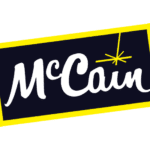[deck]New Brunswick’s Covered Bridge Potato Chip Company is using its keen marketing prowess to promote its products, and it’s getting noticed in the national media.[/deck]
The Canadian potato chip industry is a big business, with Research and Markets pegging its value at an impressive $1.6 billion by the close of 2016. It’s also highly competitive —with a plethora of well-known brands crowding stores and established players dominating shelf space, capturing the attention of consumers certainly isn’t easy.
Ryan Albright knew he had his work cut out for him when he co-founded the Covered Bridge Potato Chip Company almost 10 years ago. Based in Hartland, N.B., the family-run start-up had some major industry players to differentiate itself from — including industry behemoth Old Dutch, which also operates a potato chip factory in Hartland. The question was how to carve a niche for itself.
“There’s no guarantee. You don’t know what consumer response will be. We did tests in a deep fryer at home, slicing the potatoes by hand,” Albright says. “You put everything into it as you go.”
Covered Bridge Potato Chip Company makes old-fashioned kettle-cooked chips and employs around 95 people at its processing plant. It gets its name from Hartland’s most popular tourist attraction — the longest covered bridge in the world that’s 291 metres in length. It brings thousands of tourists to the small community of 1,000 people each year.
The “covered bridge” concept has turned into a successful marketing symbol for the company, allowing it to set itself apart from other brands of potato chips on the shelf and recently attracting the attention of Rick Mercer, one of Canada’s best-known television personalities.
Family Affair
The family’s history with potatoes goes back a long way. Albright Farms is a family-owned fourth generation company that started in the early 1920s, when the family farmed potatoes. Ryan and his brother Matthew now own the family farming business and they’re also partners in Covered Bridge Potato Chips.
The potato chip company got its start when Ryan Albright — now company president and CEO at only 34 years old — formed a brokerage company in 2004 and found himself selling potatoes to others who went and turned them into potato chips. He wanted to do more than just sell potatoes to other chipmakers, though, and in 2006 Albright formed the Covered Bridge Potato Chip Company. The first bag of Covered Bridge chips rolled off the line in January, 2009.
The vision behind the company was to make tasty kettle-cooked potato chips and create a unique brand that would capture consumer interest. Tying this concept with the Hartland’s historic covered bridge seemed like a no-brainer.
“We realized there was a real opportunity with the covered bridge and all the tourists who come to see it every year,” Albright says.
Around 100,000 people and scores of tour buses come in the summer to see the bridge. That made a good starting point, Albright thought. “We knew we could try and capture that market to help in the branding, and it worked,” he says, noting that about 200 tour buses stop by the Covered Bridge chip factory each year.
The bridge means more to the company than just a namesake, though. Tourists are welcome to take a self-guided tour of the facility, no appointment necessary. They’re provided with interesting facts about potatoes, potato chips, and agriculture in New Brunswick, while getting to see how the chips are made.

At the end of the tour, visitors receive a hot bag of chips fresh off the line and get their choice of 35 different flavour seasonings to sprinkle on their chips — something that’s hugely popular with tourists, according to Alison Aiton, travel media representative for Tourism New Brunswick. “People seem to really like that part,” she says.
Among the number of tourists who come every year is a large contingent of visitors from Asia, which inspired one of the company’s most popular and sought-after potato chip products — lobster-flavoured chips, which are sold only during lobster season from May to September.
“Fish and lobster flavour is a cultural mainstay in Asia, and when visitors from Asia come through the Maritimes, they expect lobster. They’re always buying lobster key chains and things like that,” Albright says.
Originally, the lobster chips were put into a plain silver bag and sold in the company’s gift shop. The flavour soon caught on.
“We started selling them to other places in New Brunswick, then we developed an actual bag for it. Now we sell it across Canada. It’s been a big hit,” Albright says.
The company’s decision to use russet potatoes also adds to the product’s uniqueness, he adds, since potato chips are traditionally made with white potatoes.
“When you eat any fast food chain’s french fries, they’re made from russets. It’s a whole different flavour profile,” he says, but notes using russets requires the company to communicate with their customers and let them know why Covered Bridge potato chips are darker than other brands.
“We have to educate the public that the chips aren’t burned. They’re darker in colour because of the higher sugar content in the potatoes,” Albright says.
Covered Bridge chips are all natural with no artificial colours or preservatives and no trans fat or cholesterol. The chips are also billed as gluten-free, to capture the emerging market for gluten-free alternatives.
Potato chip seasonings often contain gluten, Albright explains, but the seasonings used on Covered Bridge chips are carefully made so as to contain zero gluten. “We were the second certified gluten-free chip in North America when we started,” he says, adding that the chip factory is also kosher certified.
Covered Bridge Potato Chip Company also markets sweet potato chips. “We’re the only company in Canada that makes [sweet potato chips], and the third company in North America to make them. They’re tricky to make, and that’s why a lot of companies don’t bother with them,” Albright says. “It took us a long time to learn how to cook them right.”

Making a Mark
Craig Melanson, Hartland’s mayor, says Covered Bridge Chips has helped keep Hartland on the map as a Canadian potato chip mecca.
“The community is really proud of the work they’ve done in getting the plant up and running. They started with an idea and it’s turned out to be a great tourist attraction as well as a thriving industry for the area,” he says.
“Hartland is celebrating its 100th birthday in two years, and our history of the potato goes back a long, long way when our forefathers were marketing seed potatoes down in South America at the turn of the 20th century. There’s a good history there. The people running the Covered Bridge plant, their history goes back that far as well — from marketing, to growing, to being a part of the potato chip supply chain, to making their own potato chips now. It’s a great success story.”
That success is what led to the company’s appearance earlier this year on The Rick Mercer Report on CBC television. Albright and company staff appeared on camera with Mercer, who took a tour of the plant, tasted some freshly-made chips, mingled with staff, and cracked wise about trying to fit a large sack of Covered Bridge potato chips into the airport baggage gauge on the way home.
“We’ve been on news segments, but never on a major TV show,” Albright says. “I’m used to being in front of a camera. Rick’s a great guy on and off the camera. He’s very funny. In fact, I was coming home from Toronto the other night and someone on the plane had actually been at the airport that day when Rick was trying to take the sack of chips onto the plane as carry-on luggage.”
With its product becoming more popular, Covered Bridge Chips is expanding its line-up and facilities to keep up with demand and also enable the company to offer even more flavours.
It recently launched sour cream and onion-flavoured chips, complementing its line-up that includes mainstays like salt and vinegar and barbecue, but also features more unique flavours like Montreal steak spice and thick-cut sea salt. The company has an active social media presence, is developing a new website and has its own in-house marketing and design department.
“We own our own route trucks in Atlantic Canada and we have an iPhone app designed specifically for us — all invoicing is done on that and uploaded to our system here. That was a two-year project,” Albright says.
The business just bought another warehouse and more office space, and put in a 1,800 square-foot company gym that is free for employees to use.
“We try to make working here a lifestyle, and do what we can for our employees. We’re in growth mode and trying to push the company forward into the future and focus on our brand and distribution,” Albright says.











